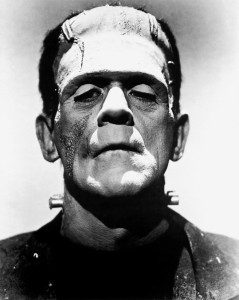Suing Private Spycops
 A woman who was Mark Kennedy’s partner in 2010 after he left the police is suing Global Open, the private spy firm he worked for.
A woman who was Mark Kennedy’s partner in 2010 after he left the police is suing Global Open, the private spy firm he worked for.
Global Open was set up in 2001 by Rod Leeming, the former Special Branch officer who ran the Animal Rights National Index database before going private to do basically the same thing (company profile here by the excellent Undercover Research Group).
Kennedy’s contract with the police formally ended in early 2010. He was immediately hired by Global Open, and at the same time actively targeted the woman (who has been granted legal anonymity for the case) and began a relationship with her.
He continued to live among the same activist community he had spied on, still using his police-fabricated identity of Mark Stone. He went to several animal rights gatherings across Europe in the summer of 2010. If he’d had the nouse to legally change his name to Mark Stone his identity documents would have been in the ‘right’ name and he may still have been spying today – and you would not be reading this.
THE GENERALS NOT THE TROOPS
In October 2010 he was exposed by activists including his long-term partner. Within hours he went to his other partner’s house and told her what had happened. She was devastated. The case she is now bringing mirrors that of around a dozen others who are suing (or have sued) the police for the systematic use of psychologically and sexually abusive relationships.
Like those cases, this one is being brought against the employer rather than the individual officer. The managers either deployed officers to use these tactics, in which case they are directly culpable, or else all these officers separately decided to do the same thing, in which case managers were negligent for not preventing or ending it.
Whilst it would presumably have little legal traction, the police must also bear a serious measure of moral responsibility for Kennedy’s post-police actions in 2010. Having trained him into that one mode of being for many years then withdrawn him with little notice or support, it is hardly surprising that he continued. Frankenstein’s monster may have terrorised the villagers but it was Dr Frankenstein who built it and failed to keep it from its rampage.
NOT JUST KENNEDY
This new case is yet another ray of light on the murky, unregulated world of corporate spying and its tight interweaving with parallel police units. The fact that Special Branch officers take their years of training and contacts to go and do the same job for private profit doesn’t merely raise ethical issues. It raises legal ones too.
The construction industry blacklist was routinely – illegally – given information on political activists by Special Branch officers across the country. Despite the blacklisters’ work being illegal, they had high-level meetings with Britain’s political secret police, including a powerpoint presentation from DCI Gordon Mills, the man who helmed the National Extremism Tactical Co-ordination Unit.
The McLibel trial exposed the fact that the entirety of McDonald’s security department were ex-police and that there was an open two-way flow of information between police and private spies. This is not officers upholding the law. This is officers breaking the law to uphold something that they consider more important.
HOW MANY MORE?
How many other political secret police officers continued the same role for a private paymaster, as Kennedy did? The fact that Global Open hired him as he was leaving the police suggests either they had inside information and knew he was becoming available, or else Global Open is known to the secret police as the place to go on to when their contract ends.
We know the names of less than 10% of the officers who worked for the disgraced political units since the Special Demonstration Squad was set up in 1968. Can we really believe that Kennedy was the first one to continue living under the same persona? Or is he just the first one exposed?
POLICE AND PRIVATE PARTNERSHIP
The revolving door between undercover political police and the even less regulated world of private spying means the two groups cannot be separated. As Mark Kennedy proved, the same damage is done for the same reasons, often by the same people, with support from both sectors, irrespective of who signs the cheque.
If the forthcoming public inquiry is to be comprehensive and credible it must examine these documented instances and structural connections, and it must expose more. Police and private political spying are not two worlds, they are one.
